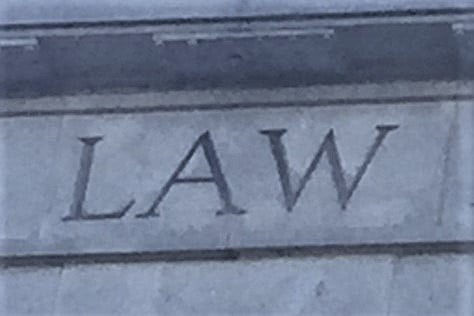
RALEIGH – The N.C. Supreme Court heard arguments Monday on two key cases that have dominated headlines in the state this year.
The first is a challenge to the 2011 legislative maps that the U.S. Supreme Court sent back to the state earlier this year. This is the third time this case has been before the justices on the state’s highest court. Previously the court sided with the legislature on the maps that the Supreme Court later said were gerrymandered with race being too big a factor.
On Monday, lawyers for the plaintiffs asked justices to officially declare the 2011 maps invalid, saying that the current redistricting process does not mean their case is over.
“This is a case where it is important that it be made clear that the rights of the plaintiffs were violated by the initial maps and ultimately a remedy is put in place that fully cures that violation and itself does not violate any state constitutional provisions,” said Anita Earls, lawyer for the plaintiffs and founder of the Southern Coalition for Justice. “Because this is a case of important public interest and is central to our democracy it is important that this case continues until there is a final remedy.”
Lawyers for the legislature say the case is moot because the U.S. Supreme Court already sent them back to the legislature in May to be redrawn. The N.C. House passed their version of the new map on Monday and the Senate passed the House version Monday night, well ahead of the Sept. 1 deadline.
“The remedy here is the injunction,” said Michael McKnight, attorney for the legislative leadership. “There’s been an injunction preventing these maps that they’ve challenged, that the plaintiffs here have challenged, from ever being used again. The 2011 maps will never be used in any other proceeding. If there is a problem with the maps the legislature is enacting now or a problem with the congressional maps, they can file a new lawsuit, any that’s the appropriate course.”
The other case heard by the state’s high court is one of the lawsuits brought by Gov. Roy Cooper against leadership of the GOP-led General Assembly. Cooper claims state lawmakers violated the constitutional separation of powers in combining the State Board of Elections and the State Ethics Commission into one body, with members split evenly between the state’s largest two political parties.
Previously, the executive branch appointed most of the elections board members. Now, the state board must be bipartisan and all 100 county elections boards go from having a majority of Democrats on panels with odd numbers of members to having boards with equal numbers of Republicans and Democrats. If there are ties in local board that cannot be settled, conflicts move to the state board for a final decision. A lower court ruled in favor of the General Assembly saying that the new board did not violate the state constitution.
The lawsuit is one of several the governor has filed against the legislature since his narrow victory into office in November.
“The governor must be able to appoint people within those agencies who share his views and priorities,” said Jim Phillips, lawyer for Cooper.
“The court found that this board was different, but it’s not. An examination of the duties and functions of this new board and the agency where it resides shows that it is clearly executive in nature,” he said.
Lawyers for the legislature point out that the new board members are still appointed by the governor from a list of choices provided by the state’s political parties.
“The governor wants to substitute for the legislative intent, his own views and priorities, which may be vastly different than those of the people who enacted the laws,” said legislative attorney Noah Huffstetler.
“He claims that he must have power to completely control people who work in his administration so that they are robotically inclined to follow his views and priorities,” he said. “He leaves no room for these persons to honestly consider … and that is not the legislative intent behind this statute.”
The N.C. Supreme Court justices have not indicated when they will rule on the cases.



